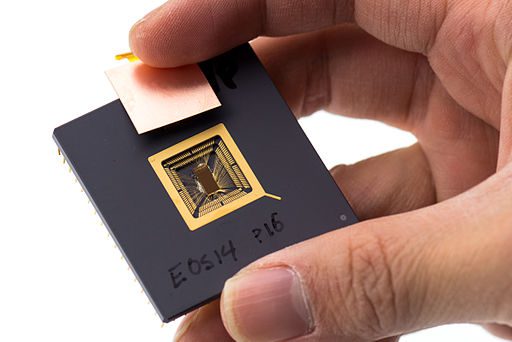Facebook hired the former director of engineering from Google for making Its own chips

Facebook appointed Shahriar Rabii, former head of Google’s chip business, as its vice president and head of the chip division. Like Apple, Google, and Amazon, the technology company also hopes to get rid of its dependence on the “chip giant” and decide to develop its own chip technology.
As early as April this year, there was news that Facebook plans to independently develop chips. At that time, it was pointed out that Facebook is setting up a team to recruit end-to-end SoC/ASIC, and the development manager of the firmware and drivers associated with it to serve its huge data center and AI. It seems that at least the team leader is already in place.
Before joining Facebook, Rabii worked at Google. According to his resume on LinkedIn, he was responsible for the development of the Pixel Visual Core chip on the Pixel 2 phone, a chip designed to handle heavy image operations. Rabii is also responsible for the development of Google’s information security chip Titan. After joining Facebook, Rabii was the head of the chip division and served as vice president, reporting to Andrew Bosworth, head of VR and AR.
Although Rabii has extensive experience in mobile phone chips, Facebook may not let Rabii lead the mobile phone chip business. Facebook once entered the mobile space, launching an app called Facebook Home running on the Android operating system. But user feedback is not optimistic, and Facebook has since admitted that Facebook Home is a failed product. But for a social media company with 2 billion users, there are many areas where the chip business can reach its potential.
In 2014, Facebook spent $2 billion to acquire Oculus, a virtual reality technology company, and this year launched Oculus Go, a VR headset that is “price-friendly.” However, Oculus Go still relies on Qualcomm’s chips, and overall, Facebook does not have a clear vision of Oculus’s layout. From the perspective of Rabii’s personnel arrangement, the chip will have business crossovers in the VR and AR fields, and it is not difficult to infer that Oculus products will have the opportunity to use Facebook’s self-developed chips. In addition, Facebook’s hardware lab Building 8 will develop a smart speaker with a 15-inch touchscreen, which will be used in video chat scenarios. The smart speaker will also need to independently develop the “blessing” of the chip.
In addition to the layout on the hardware, Facebook is also thinking about how to deal with a large amount of user data that it faces every day. It needs algorithms to monitor various potential violations on its platform, including malicious speech and spam. But from the “scandals” that have exploded in the past two years, Facebook has not done well. Depending on NVIDIA’s GPU, Facebook is able to handle the data pressure generated by a large number of users, enabling the platform to perform facial recognition, real-time text translation, and understanding of photo and video content. Self-developed chips can also help improve AI performance and “eliminate” Facebook’s widespread criticism of malicious speech, false accounts, and violent videos.
The actions of many technology companies have hinted at keeping chip technology in their hands and reducing their reliance on chip makers such as Intel and Qualcomm. Excluding the Pixel Visual Core chip, which was developed with the participation of Rabii, Google plans to launch a new Pixel phone this year and will also adopt a self-developed chip. Apple has used its own A-series processors for iPad and iPhone since 2010. New products launched in recent years, such as AirPods, also use self-developed W1 chips. Apple is expected to use its own research and development processor on the Mac in 2020. According to The Information, Amazon has developed dedicated AI chips for its Echo speakers and hardware products for Amazon’s voice assistant Alexa.
Bloomberg believes that the iterative and upgrading of equipment in the future is inseparable from the chips independently developed by enterprises. With chip technology in mind, Facebook can better control the direction of the product and tightly bundle the hardware and software together. Last week, former Google AI director John Giannandrea joined Apple and was responsible for the new AI/machine learning team. Major technology companies have long entered the talent battle, although Facebook and Google declined to comment on this, Rabii Joining the facts is a key step in Facebook’s soft and hardware ecosystem.
Source: Bloomberg





